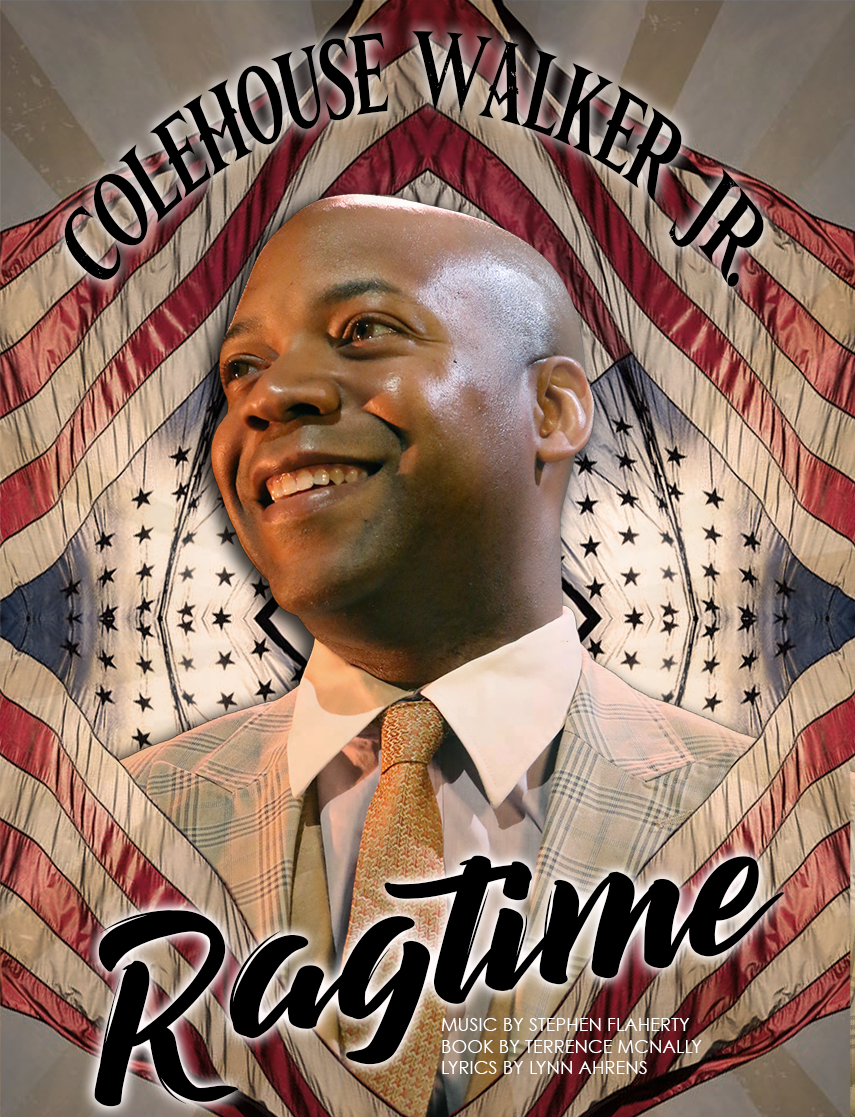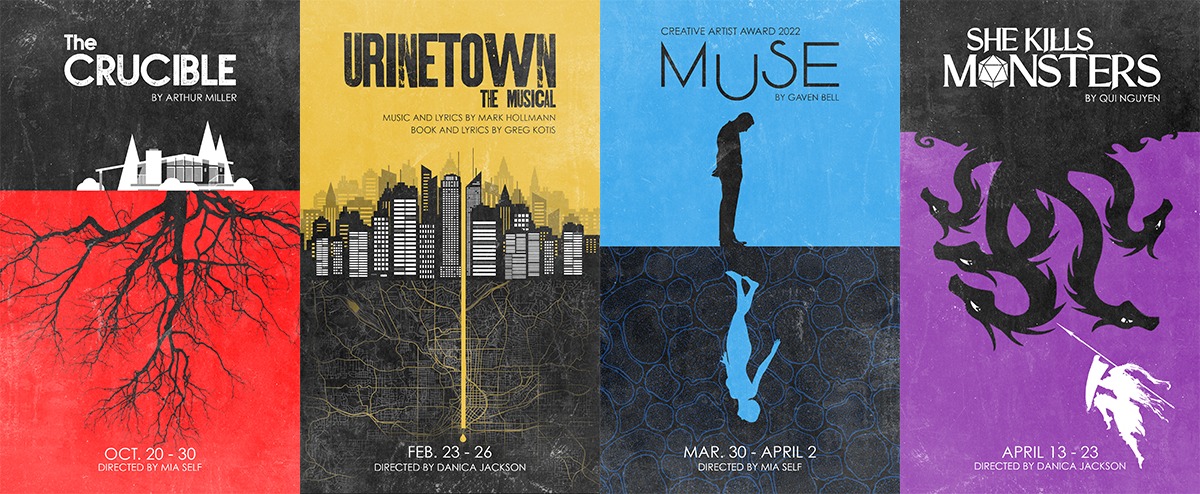Ragtime Roles: Coalhouse Walker Jr.

“A Story of Returning for Byron Jennings and University Theatre’s Ragtime”
by Teal Lepley, class of 2017
As a new decade begins, it certainly seems auspicious timing that NC State’s University Theatre is abuzz with rehearsals for a musical about the dawn of a new century—an era that bears curious parallels with the time we find ourselves living in now. Originally premiering on Broadway in 1998, Ragtime is set in 1906, focusing on three New York communities: the upper-class white families of New Rochelle, the African American community in Harlem, and the immigrants of the Lower East Side tenements. The musical’s title refers to a popular music of the time, described in the show as “simple and somehow sublime / giving the nation / A new syncopation … Changing the tune, changing the time.” Indeed, the world of Ragtime is changing rapidly as three families from these distinct communities collide and their fates entwine.

Amongst the student cast at University Theatre stands one exception. Byron Jennings, II is an alumnus from NC State, returning to their stage after graduating eighteen years ago with a degree in Political Science. Manager of a law firm by day and local actor in the evening, Jennings cites University Theatre for much of the training that shaped him as an artist he is today, something shared between he and I. During my interview with Byron Jennings, we bonded over our nostalgia at returning to NC State. I myself graduated in 2017 after various productions as an actor and one as a playwright, later returning as an alumna to act in their annual TheatreFEST summer shows. Looking around the Thompson Hall lobby at the many show posters, Jennings fondly remarked, “This is home. This is always, always home, so it’s great to be back.” It was a sentiment we shared, two alumni reminiscing together about staff and facility changes. He also commented how wonderful it was to see how the program had grown and the impressive students he worked with. “[The program] was strong when I got here in 1998, and it’s beautiful to see that the tradition of great theatre is still happening here.”
Jennings plays Coalhouse Walker Jr., an African American ragtime pianist in Harlem searching to reunite with his lost love, Sarah. “In finding her, Coalhouse finds out other things that motivate him to be a better man,” he explained, “But also to try to make some dreams come true that weren’t necessarily available to people of color at the time.”
This is home. This is always, always home
Though many historical figures ranging from Booker T. Washington to Harry Houdini are featured in the show, Coalhouse remains one of the characters original to the show and the book that inspired it, a 1975 novel of the same name by E.L. Doctorow, though the character was likely influenced by events of the time. Jennings connects with the character in part through their shared love for storytelling. “[Coalhouse] is a pianist… Music infuses his soul. In fact, it’s one of Sarah’s lyrics to him, ‘You tell stories / Like your hands play tunes.’ And him being able to play ragtime is so essential to who he is.”

For Byron Jennings, it’s truly a story of returning. Returning not only to University Theatre, but also to the role of Coalhouse, a character who is himself returning to his lover. He previously played Coalhouse in a 2013 production by The Justice Theatre Project here in Raleigh, but he knew of Ragtime long before that; in fact, he can recall the exact moment he fell in love with it. While on winter break from NC State in 1999, Jennings had been hanging out with friends, one of whom had put on the Ragtime Original Broadway Cast album playing in the background, and he’d been struck by the song ‘Your Daddy’s Son’ featuring Audra McDonald. “I said, I’m determined to do this show. You know, I was 19 at the time but I was like, I’m gonna do this one day.” It was a dream he fulfilled in 2013 and yet again today, seven years later, and the time between certainly makes an impact on playing the character for him.
“I am seven years older and with that comes more life experience, and of course I would be remiss if I didn’t mention what’s happened in our world,” he explains, “I’ve been informed by a lot of things that have happened. The #MeToo movement, the Black Lives Matter movement, a new administration—that’s all absolutely informing the story we’re trying to tell here.” If anything, the show seems only to have grown in relevance since Jennings’ first production and even since Ragtime’s Broadway premiere. Observing a small rehearsal exactly one month before the show opens, it came as no surprise to hear open dialogue between director Mia Self and the actors about the experiences of the characters and their own relevant experiences, 114 years later. In fact, many of the challenges facing the characters are ones dealt with every day, if not in our own lives or those around us, then certainly on the news: racism, sexism, classism, prejudice towards immigrants, injustice, and the struggle to adjust to the rapid change and modernization of our society. Ragtime depicts these issues in a different time yet a familiar spirit, though it is not without hope. “You may have these distinct groups—the New Rochelle, the immigrants, Harlem—but no man, no group is an island,” Jennings said. “We have a lot of work to do, all of us. I think it’s an important thing to remember: we all have to put in the work, and we all have to put in the work together.”
Meanwhile, he hopes Ragtime leaves audiences with much to think about. “It tells a story that continuously needs to be told, and I’m a storyteller, I’m glad to be able to help tell it.”
.
- Categories:

